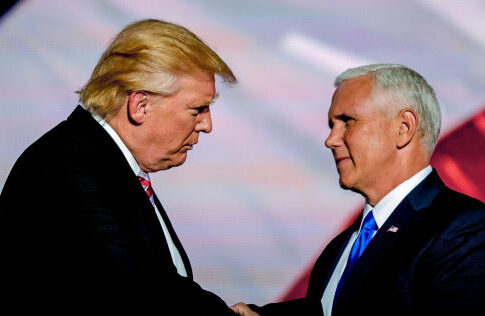A political showdown threatens to reshape Senate norms as President Trump accuses Senate Minority Leader Chuck Schumer of extortion over stalled nominee confirmations.
Trump’s Accusation and the Political Standoff
President Donald Trump has publicly accused Senate Minority Leader Chuck Schumer of “political extortion,” alleging that Schumer demanded $2 billion in exchange for the expedited confirmation of over 150 of Trump’s executive nominees. This accusation was made on Trump’s platform, Truth Social, amidst a significant backlog of appointments. Senate Democrats have been blocking confirmations by refusing voice votes or unanimous consent, leading Republicans to consider changing Senate rules to override Democratic opposition.
The Senate has entered its August recess without resolving the impasse, leaving more than 140 nominations in limbo. The alleged demand for $2 billion has not been independently corroborated, and Democrats have reframed the dispute as a matter of nominee qualifications and legislative priorities. This standoff could lead to significant procedural changes, with Republicans threatening to invoke the “nuclear option” to change confirmation rules, a move that would alter the Senate’s long-standing norms.
The Nuclear Option and Senate Dynamics
The “nuclear option” refers to a potential rule change that would allow confirmations to proceed with a simple majority vote, effectively bypassing the minority party’s ability to delay through filibuster. This tactic has been employed in the past, notably in 2013 by Senate Democrats for lower court and executive nominees, and in 2017 by Republicans for Supreme Court nominees. The consideration of this option underscores the growing polarization within the Senate, where both parties have increasingly relied on procedural tactics to advance or block nominations.
Senate Majority Leader John Thune has expressed frustration at the delays, indicating that procedural reform may be necessary to ensure that government positions are filled promptly. The potential invocation of the nuclear option raises concerns about future Senate operations, as it could diminish the minority party’s influence in confirmations and set a precedent for further partisan rule changes.
Implications for Governance and Bipartisan Cooperation
The ongoing standoff has significant implications for the effective functioning of the government. With key executive positions remaining vacant, federal agencies face leadership gaps that could hinder policy implementation and government operations. The deadlock also exacerbates partisan tensions and legislative gridlock, contributing to public cynicism about the political process.
In the long term, if the nuclear option is employed, it could transform Senate norms by making confirmations a routine majority vote process, thereby reducing the need for bipartisan cooperation. This shift could impact future administrations and alter the balance of power in the Senate, highlighting the need for careful consideration of the broader consequences of such procedural changes.
Sources:
iHeartRadio – Senate Republicans Threaten Nuclear Option to Confirm Stalled Nominees
Fox News – Senate GOP Ready to Go Nuclear After Schumer’s Political Extortion Nominees
Tampa Free Press – Trump Accuses Schumer of Extortion Amid Stalled Appointments
“`


